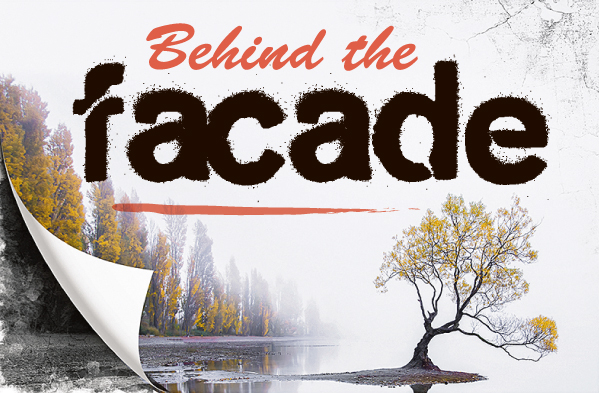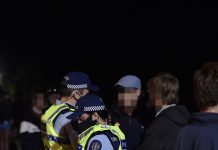Is there a drug scene in Upper Clutha? If so, what is it? And how do we talk about it? Aspen Bruce takes a look.
A local recreational drug user has confirmed marijuana, ecstasy (MDMA), LSD/acid and mushrooms are easy to obtain in Upper Clutha.
Regardless of personal stance or position on drugs, one unifying factor connects emergency services, users, event organisers, support services and legal systems: the need for safety.
The recreational user said despite their popularity, the quality of drugs in the area was some of the worst they had taken.
“The dangerous thing here is the drug of choice is MDMA and it’s really bad quality. To the point where I, and other people I know, wouldn’t bother taking it,” they said.
They recounted an experience where they bought what they thought was MDMA, yet after taking it, knew it was not.
They speculated that due to location, substances undergo multiple “cuts” down the supply chain, which result in the drug becoming mixed.
“The thing that gets substituted in here is often speed, which some people choose to take anyway, or eutylone, and it’s real bad.
‘‘It has similar effects [to MDMA], but on a smaller scale, so people think it’s not very strong and take a bit more. If you take too much of it, it can induce psychosis and [it] has real effects on your mental health.
‘‘There’s heaps of people that have taken it and had mental breakdowns while on it …
‘‘Most of that, I believe, could be fixed by having more drug testing,” they said.
Data from the past three years of wastewater testing consecutively revealed the Southern district as the top location in New Zealand for MDMA usage.
In an attempt to reduce drug harm, changes in national legalisation and police processes have reflected a shift in prioritisation towards drug safety.
Interim legalisation was established in 2020 to allow drug-checking services to operate at festivals under The Drug and Substance Checking Legislation Act 2020 (referred to as Drug Check Act).
Throughout the summers of 2021 and 2022, KnowYourStuff, a volunteer-based, drug-checking organisation had a presence at the country’s summer festivals.
Research undertaken by Victoria University on behalf of the Ministry of Health revealed these drug-checking services were changing people’s behaviour and led last year to a permanent change to the Drug and Substance Checking Legislation Act 2021.
Police wastewater results consistently showed a spike in drug use during the summer months across the Southern region.
Wanaka Senior Sergeant Chris Brooks said his department was aware of this increase.
“We know drug use peaks during summer. We have music events across the wider region, and know organised crime target these main events.”
Following on from legislation changes, Snr Sgt Brooks said a shift in the Police Bill of Rights had occurred.
“It’s all about minimisation now and focused on charging suppliers.
‘‘With users, it is more of a health issue. No›one wants to feel sick.’’
When an event applied for alcohol licensing, discussion around a drug management plan was also required, Snr Sgt Brooks said.
For large events of more than 400 patrons, the Queenstown Lakes District Council’s drug management plan stated “it is the responsibility of the event organiser/licensee to ensure the best result from any situation while maximising the safety of staff and patrons’’.
The plan included things to consider such as “what aspects of intoxication/minors/customer behaviour pose a risk?”, “what actions will be taken before, during and after an event to mitigate risk” and “how and where they will record an incident?”
Examples given were “bad drugs, excessive consumption (overdose), drink spiking, weather conditions and removal from premises’’.
Last month, a drug scanning tool, Lumi, was launched to frontline police nationwide.
During the six-month pilot period, the Lumi device immediately identified — with 95% accuracy — if an unknown substance was metham› phetamine, cocaine or MDMA.
This provided officers with better information about the appropriate course of action to take regarding a drug holder.
Police assistant commissioner Lauano Sue Schwalger said the findings showed people were more likely to disclose what the substance was.
“This meant the officer could then directly assess if they were suitable for a warning, health referral or to go through the courts process,” Superintendent Schwalger said.
The device was co›designed by police and Environmental Science and Research (ESR).
With summer drawing closer, questions remained around what drug safety and community support practically looked like.
This month, The News will report on the various components that link the wider community conversation on drugs. If you have something to contribute to the conversation, contact aspen.bruce@thenews. co.nz.
Behind the Facade, The News investigates the threads and facts about what is happening in our community. Throughout this investigation, we will ask the hard questions about these grey areas, seeking to gain clarity about what safety within our community really looks like, and what role and responsibility we each have.
This month The News looks at the drug scene:
Wastewater testing dirty job, but yields data





